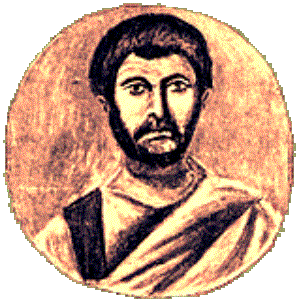Publio Terenzio Afro frasi celebri
“I litigi tra gli innamorati completano l'amore.”
Amantium irae amoris integratio est.
555
Amantium irae amoris integratio est.
Andria (La ragazza di Andros)
“Non c'è niente di così facile che non diventi difficile quando si fa controvoglia.”
818
Heautontimoroumenos (Il punitore di se stesso)
Originale: (la) Nullast tam facilis res quin difficilis siet, quam invitus facias.
I, 2, 98-99
Adelphoe (I fratelli)
Publio Terenzio Afro Frasi e Citazioni
“Sono un uomo e nulla di ciò che è umano mi è estraneo.”
Homo sum: humani nil a me alienum puto.
I, 1, 77
“L'ossequio ti genera amici, la verità odio.”
Obsequium amicos, veritas odium parit.
68
Obsequium amicos, veritas odium parit.
Andria (La ragazza di Andros)
“Quando la mente è presa dal dubbio viene spinta qua e là da un impulso leggerissimo.”
I, 5
Andria (La ragazza di Andros)
“Nulla è tanto difficile che, a forza di cercare, non se ne possa venire a capo.”
675
Nil tam difficile est quin quaerendo investigari possiet.
Heautontimoroumenos (Il punitore di se stesso)
Simo. Vos istaec intro auferte: abite. – Sosia, ades dum: paucis te volo.
Sosia. dictum puta: nempe ut curentur recte haec?
Simo. immo aliud.
Sosia. quid est quod tibi mea ars efficere hoc possit amplius?
Simo. nil istac opus est arte ad hanc rem quam paro, sed eis quas semper in te intellexi sitas, fide et taciturnitate.
Sosia. exspecto quid velis.
Andria (La ragazza di Andros), Incipit, Massimo Rossi
Origine: dum: è qui attestato l'antico significato avverbiale di "per un momento". Probabilmente la sua radice è quella del verbo durare.
Publio Terenzio Afro: Frasi in inglese
“So many men, so many opinions: to each his own way.”
Quot homines tot sententiae: suus cuique mos.
Act II, scene 4, line 14 (454).
Variant translations:
There are as many opinions as there are people: each has his own view.
There are as many opinions as there are people: each has his own correct way.
There are as many opinions as there are people: everyone has their own way of doing things.
Phormio
“It is a maxim of old that among themselves all things are common to friends.”
Act V, scene 3, line 18 (803).
Adelphoe (The Brothers)
“I only wish I may see your head stroked down with a slipper.”
Act V, scene 7, 4, line 1028.
Eunuchus
“What now if the sky were to fall?”
Act IV, scene 3, line 41 (719).
Heauton Timorumenos (The Self-Tormentor)
“Moderation in all things.”
Ne quid nimis.
Not anything in excess, a translation from the Greek μηδὲν ἄγαν. "Nothing in excess" as inscribed on the Temple of Apollo at Delphi.
Origine: Andria (The Lady of Andros), Line 61.
“Look you, I am the most concerned in my own interests.”
Act IV, scene 1, line 12 (636).
Andria (The Lady of Andros)
“Many a time,… from a bad beginning great friendships have sprung up.”
Act V, scene 2, 34, line 873.
Eunuchus
“Some might, but not you.”
Aliis si licet, tibi non licet.
Act IV, scene 5, line 49 (797).
Variant translations:
Though others were at liberty, you are not at liberty.
Even though it is permitted for others, it isn't permitted for you.
Heauton Timorumenos (The Self-Tormentor)
“Hence these tears.”
Hinc illae lacrimae.
Variant translation: Hence all those tears shed.
Origine: Andria (The Lady of Andros), Line 126.
“Time removes distress.”
Diem adimere aegritudinem hominibus.
Act III, scene 1, line 12 (421).
Variant translations:
Time heal all wounds.
Time assuages sorrow.
Heauton Timorumenos (The Self-Tormentor)
